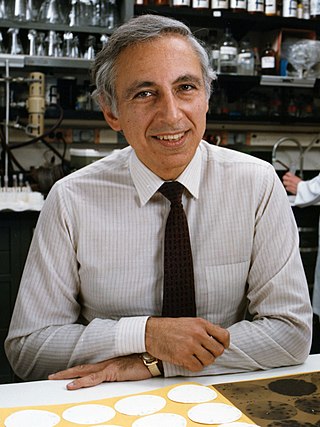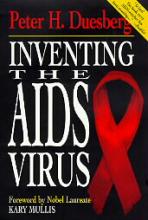Related Research Articles

Richard Allen Epstein is an American legal scholar known for his writings on torts, contracts, property rights, law and economics, classical liberalism, and libertarianism. He is the Laurence A. Tisch Professor of Law at New York University and the director of the Classical Liberal Institute. He also serves as the Peter and Kirsten Bedford Senior Fellow at the Hoover Institution and as a senior lecturer and the James Parker Hall Distinguished Service Professor of Law Emeritus at the University of Chicago.
William Julius Wilson is an American sociologist, a professor at Harvard University, and an author of works on urban sociology, race, and class issues. Laureate of the National Medal of Science, he served as the 80th President of the American Sociological Association, was a member of numerous national boards and commissions. He identified the importance of neighborhood effects and demonstrated how limited employment opportunities and weakened institutional resources exacerbated poverty within American inner-city neighborhoods.
Robert Allan Humphreys (1930–1988), known as Laud Humphreys, was an American sociologist and Episcopal priest. He is noted for his research into sexual encounters between men in public bathrooms, published as Tearoom Trade (1970) and for the questions that emerged from what was overwhelmingly considered unethical research methods. He influenced generations of scholars who research issues related to sexuality and sexual identity.
NYU Grossman School of Medicine is a medical school of New York University (NYU), a private research university in New York City. It was founded in 1841 and is one of two medical schools of the university, the other being the NYU Grossman Long Island School of Medicine. Both are part of NYU Langone Health.
Susan Starr Sered is Professor of Sociology at Suffolk University and Senior Researcher at Suffolk University's Center for Women's Health and Human Rights. Previously, she was the director of the Religion, Health and Healing Initiative at the Harvard University Center for the Study of World Religions, and a Professor of Sociology and Anthropology at Bar-Ilan University, Israel. Her interests include both research and advocacy/activism.

Signs: Journal of Women in Culture and Society is a peer-reviewed feminist academic journal. It was established in 1975 by Jean W. Sacks, Head of the Journals Division, with Catharine R. Stimpson as its first editor-in-Chief, and is published quarterly by the University of Chicago Press. Signs publishes essays examining the lives of women, men, and non-binary people around the globe from both historical and contemporary perspectives, as well as theoretical and critical articles addressing processes of gendering, sexualization, and racialization.
The American Bar Foundation (ABF) is an independent, nonprofit national research institute established in 1952 and located in Chicago, United States. Its mission is to expand knowledge and advance justice by supporting innovative, interdisciplinary and rigorous empirical research on law, legal processes and legal institutions. This program of sociolegal research is conducted by an interdisciplinary staff of Research Faculty trained in such diverse fields as law, sociology, psychology, political science, philosophy, economics, history, and anthropology.
Troy Smith Duster is an American sociologist with research interests in the sociology of science, public policy, race and ethnicity and deviance. He is a Chancellor’s Professor of Sociology at University of California, Berkeley, and professor of sociology and director of the Institute for the History of the Production of Knowledge at New York University. Duster is on the faculty advisor boards of the Berkeley Center for Social Medicine and the Berkeley Center for Right-Wing Studies.
Gregory M. Herek is a researcher, author, and professor of psychology at the University of California at Davis (UCD). He has conducted extensive research on prejudice against sexual minorities, and coined the term sexual prejudice as a replacement for homophobia to describe this phenomenon. Herek argued that using the term homophobia incorrectly assumes that negative responses to lesbian, gay, and bisexual people are founded in pathological, irrational fear, whereas psychological research indicates they are more accurately regarded as a form of prejudice. Herek is an openly and prominent gay psychologist. Herek is considered one of the most influential scholars of sexual minorities.

Robert Charles Gallo is an American biomedical researcher. He is best known for his role in establishing the human immunodeficiency virus (HIV) as the infectious agent responsible for acquired immune deficiency syndrome (AIDS) and in the development of the HIV blood test, and he has been a major contributor to subsequent HIV research.

Michèle Lamont is a Canadian sociologist who is the Robert I. Goldman Professor of European Studies and a professor of Sociology and African American Studies at Harvard University. She is a contributor to the study of culture, inequality, racism and anti-racism, the sociology of morality, evaluation and higher education, and the study of cultural and social change. She is the recipient of the Gutenberg Award and the Erasmus award, for her "devoted contribution to social science research into the relationship between knowledge, power, and diversity." She has received honorary degrees from five countries. and been elected to the British Academy, Royal Society of Canada, Chevalier de l’Ordre des Palmes académiques, and the Sociological Research Association. She served as president of the American Sociological Association from 2016 to 2017. In 2024, she was elected to the American Philosophical Society.

Inventing the AIDS Virus is a 1996 book by molecular biologist Peter Duesberg, in which the author argues that HIV does not cause AIDS. Duesberg contends that HIV is a harmless passenger virus and that AIDS is caused by unrelated factors such as drug abuse, antiretroviral medication, chronic malnutrition, poor sanitation, and hemophilia. The unambiguous scientific consensus is that HIV causes AIDS and that Duesberg's claims are incorrect. Duesberg received a negative response from the scientific community for supporting AIDS denialism, misrepresenting and ignoring the scientific evidence that HIV causes AIDS, and for relying upon poor logic and manipulation. The book was also the subject of an authorship dispute with one of his graduate students.
Warren Winkelstein Jr. was an American epidemiologist, professor in the School of Public Health at the University of California, Berkeley, and a member of the Institute of Medicine of the U.S. National Academy of Sciences. During the 1960s Winkelstein was considered one of the leading epidemiologists of the time.
Carol Anne Heimer is Professor of Sociology Emerita at Northwestern University and a Research Professor at the American Bar Foundation. She is known for her research on the sociology of risk and responsibility, and on the connections between regulation, ethics, and law in medical practice. As of November 2023, Heimer became the editor of the Annual Review of Law and Social Science.
Aldon Douglas Morris is emeritus professor of sociology at Northwestern University and member of the American Academy of Arts and Sciences, whose work involves social movements, civil rights, and social inequality. He was the 2021 president of the American Sociological Association. He is best known for his work on sociolgist W. E. B. Du Bois.

Medical sociology is the sociological analysis of medical organizations and institutions; the production of knowledge and selection of methods, the actions and interactions of healthcare professionals, and the social or cultural effects of medical practice. The field commonly interacts with the sociology of knowledge, science and technology studies, and social epistemology. Medical sociologists are also interested in the qualitative experiences of patients, often working at the boundaries of public health, social work, demography and gerontology to explore phenomena at the intersection of the social and clinical sciences. Health disparities commonly relate to typical categories such as class and race. Objective sociological research findings quickly become a normative and political issue.
Susan Cotts Watkins is an American demographer. She has been a professor at Yale University and the University of Pennsylvania. She is now professor emerita at the University of Pennsylvania. Her research has focused on the impact of social networks on cultural change in the demography of the U.S., Western Europe, and Africa.
Celeste Watkins-Hayes is a public policy scholar and dean of the Gerald R. Ford School of Public Policy of the University of Michigan.
Verta Ann Taylor is a professor of sociology at the University of California, Santa Barbara, with focuses on gender, sexuality, social movements, and women's health.

Donald L. Patrick is a social scientist, academic, and an author. He is a Professor Emeritus of Health Systems and Population Health at the University of Washington, Director of Seattle Quality of Life Group, and Creator of the Biobehavioral Cancer Prevention and Control Training Program jointly with the Fred Hutchinson Cancer Center. He has served as the co-chair of the Cochrane Collaboration's Patient Reported Outcomes Methods Group. His research interests revolve around various aspects of public health which integrate the themes from fields such as psychological intervention, social stratification, public health, and quality of life. Much of his research works have focused on outcomes research on vulnerable populations, health disparities, and end-of-life-care.
References
- 1 2 "Steven Epstein: Department of Sociology - Northwestern University". sociology.northwestern.edu. Retrieved 2024-01-10.
- ↑ "Steven Epstein | Robert Wood Johnson Foundation - Investigator Awards in Health Policy Research". investigatorawards.org. Retrieved 2024-01-10.
- ↑ Goldberg, Jeffrey (January 12, 1997). "Breakthrough". The New York Times . Retrieved 2010-03-15.
- ↑ Seideman, Nancy (1996-12-03). "SCIENCE VS. REALITY". Washington Post. ISSN 0190-8286 . Retrieved 2024-01-10.
- ↑ "The Society for the Study of Social Problems | Past Winners". www.sssp1.org. Retrieved 2024-01-10.